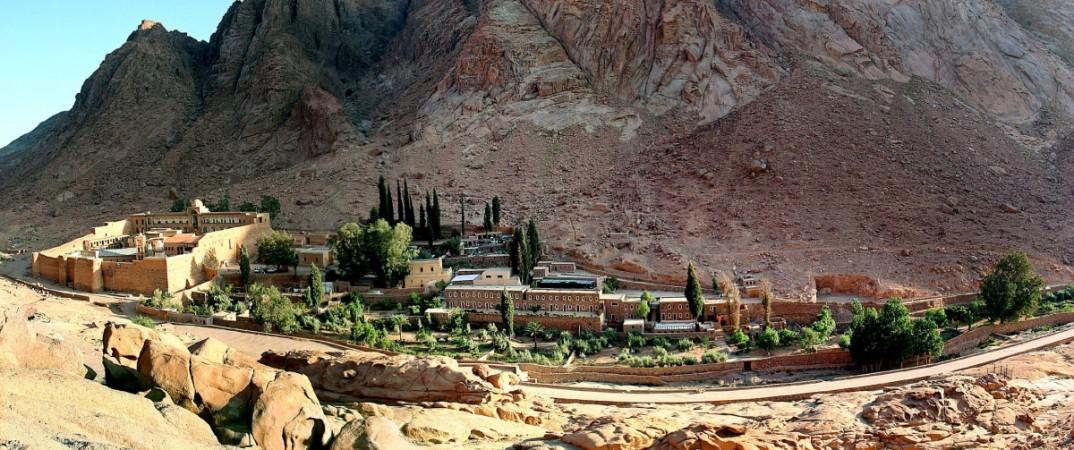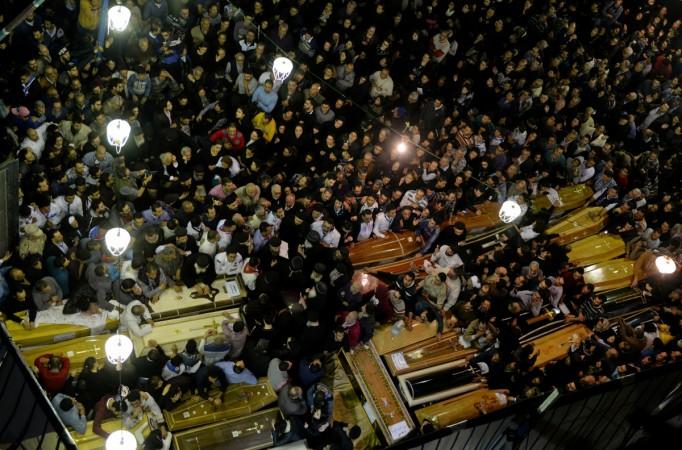
At least one police officer was killed and four others were injured after gunmen attacked security forces near St. Catherine's Monastery at south Sinai in Egypt. The Islamic State group has claimed responsibility for the attack. The attack comes just a week after twin church bombings killed 45 people on Palm Sunday in Egypt.
A police checkpoint situated about 800 metres from the entrance to the monastery in south Sinai was attacked by the Isis gunmen. Reuters reported that security has been beefed up while tourist facilities across southern Sinai have been put on high alert following the attack.
The monastery, which was founded in the 6th century, is located at the foot of Mount Sinai. The UNESCO World Heritage site is one of the world's oldest and most important Christian sites. It is a part of the Eastern Orthodox Church.
The attack happened just 10 days before Pope Francis' scheduled visit to Cairo and just a week after Isis carried out two deadly suicide bombings on Christian churches in the country claiming the lives of 45 people. President Abdel Fattah el-Sisi declared a three-month state of emergency following the incident. It was the bloodiest attack on the Christian minority in Egypt in decades.
The Christian minority in Egypt makes up about 10 percent of the population in the country of 92 million people, pre-dominantly Muslims, and is being increasingly targeted by the Isis group.

The terrorist organisation has carried out three deadly church attacks within four months. A blast at Cairo's main Coptic Christian Cathedral had killed 25 people and injured 35 others in December 2016.
Several Christian families and students had fled the North Sinai province in February this year after a series of targeted killings, Reuters reported. The attack on St. Catherine's Monastery comes as a fresh challenge to President Sisi, who had vowed to protect the minority community during his campaign against extremism. However, attacks in the south Sinai, which is dotted with Red Sea resorts and is a popular destination for tourists, are by contrast rare.
Egypt has fought against Islamist insurgency for several years in the thinly populated northern Sinai when it gained pace after the military overthrew President Mohamed Mursi of the Muslim Brotherhood in 2013 following massive protests against his rule. Recently, Israel banned its citizens from crossing over into the Sinai peninsula citing the increasing threat of attacks by Isis and other jihadi groups in the area.

















